Mookie Blaylock's downward spiral and the family he dragged with him

At around 1 p.m. on May 31, 2013, Frank and Monica Murphy pulled out of a Taco Bell onto Tara Boulevard in Jonesboro, Georgia, about 20 miles south of downtown Atlanta. They were moving to the area from Plano, Tex., and had an appointment to see a house that afternoon. Their Chrysler Town & Country minivan was loaded with their possessions. Their five children were staying in a nearby hotel with Monica’s mother.
They were excited to be moving back to the Atlanta area, where they had lived for 10 years before spending the past 18 months in Texas. As an interracial couple—he, 43, was white; she, 40, was black—they found Atlanta more open and cosmopolitan than the Dallas area, and their employment situations had given them a chance to move back. Frank’s passion was playing guitar in metal bands, but he made a living operating a forklift and doing other blue-collar work, and had just been laid off by FedEx. Monica had recently become a licensed insurance broker, which meant she could work anywhere she wanted.
They pulled up to a stoplight, the second car in the line, Frank driving and Monica in the passenger seat. The light changed. Frank pulled out slowly behind another car. When he saw the black Escalade barreling toward him at a 45 degree angle, going about 50 miles per hour, he could barely begin to process what he was seeing, let alone react.
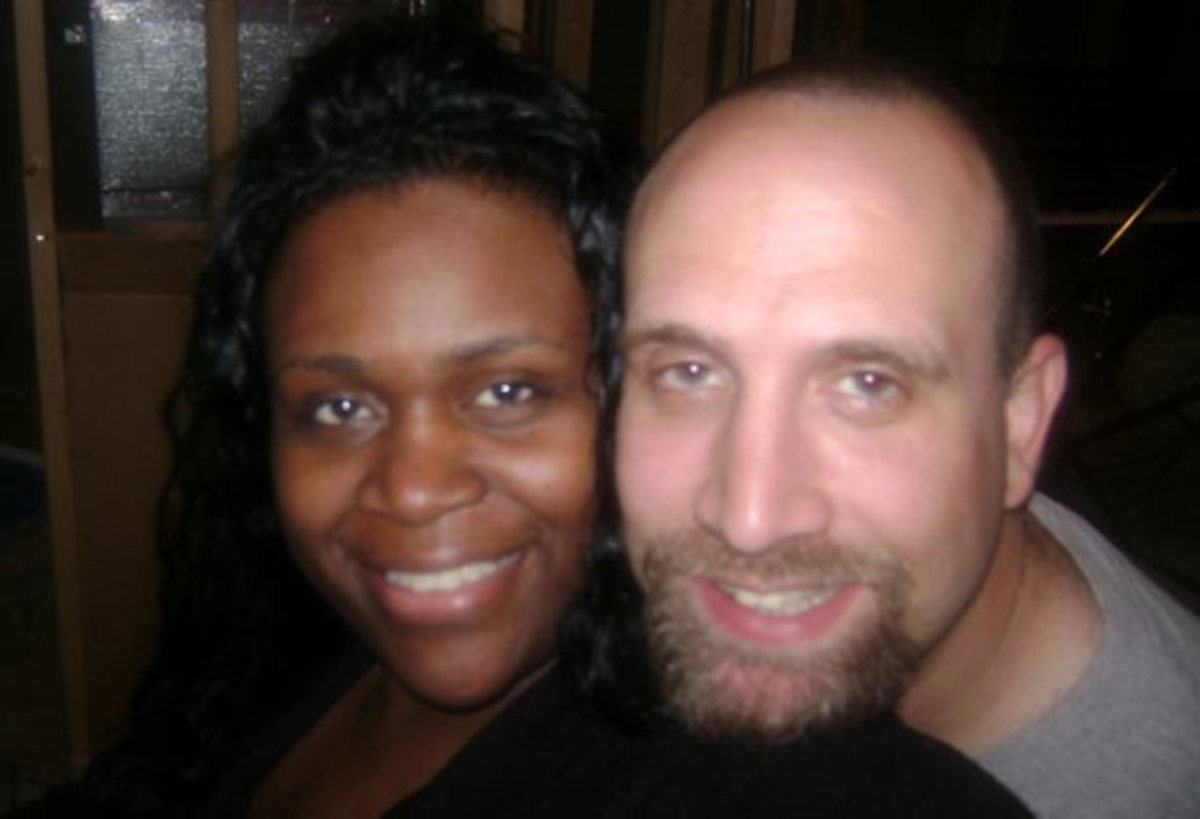
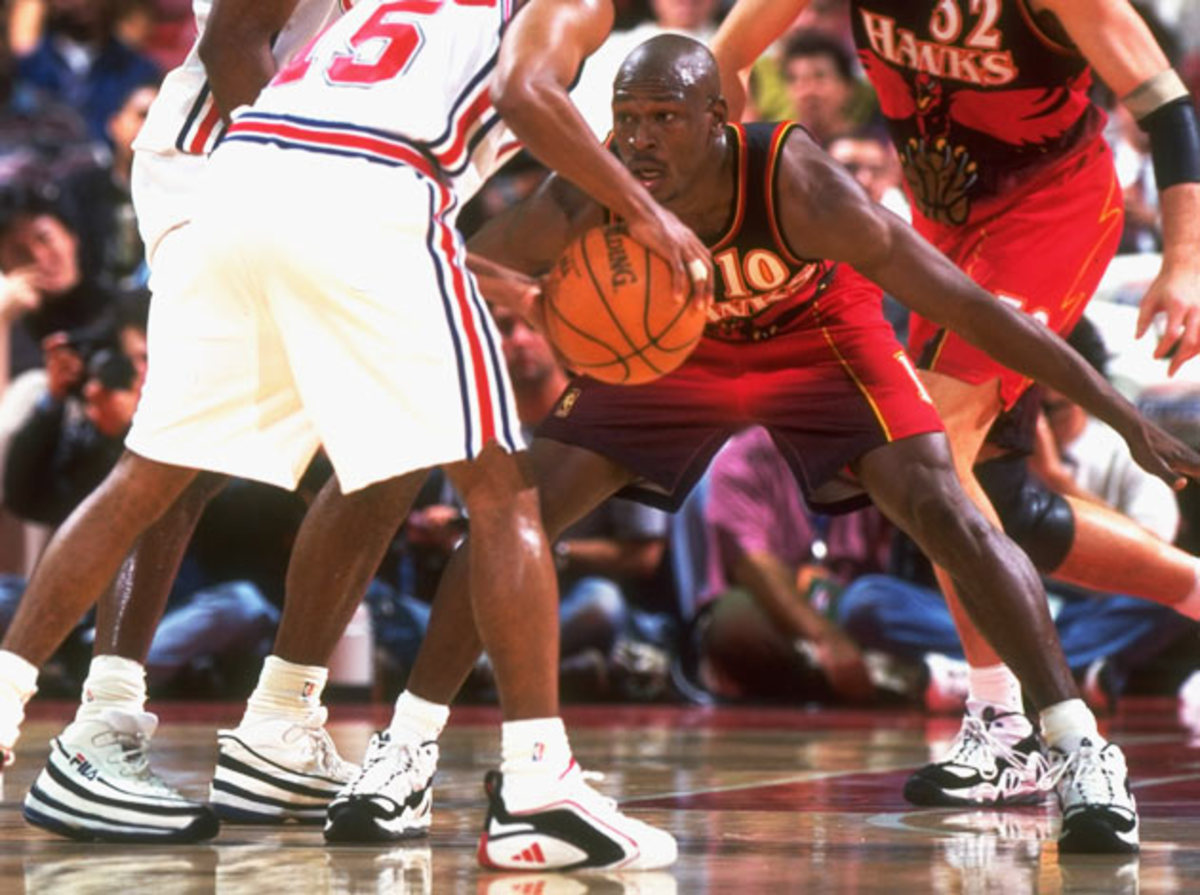
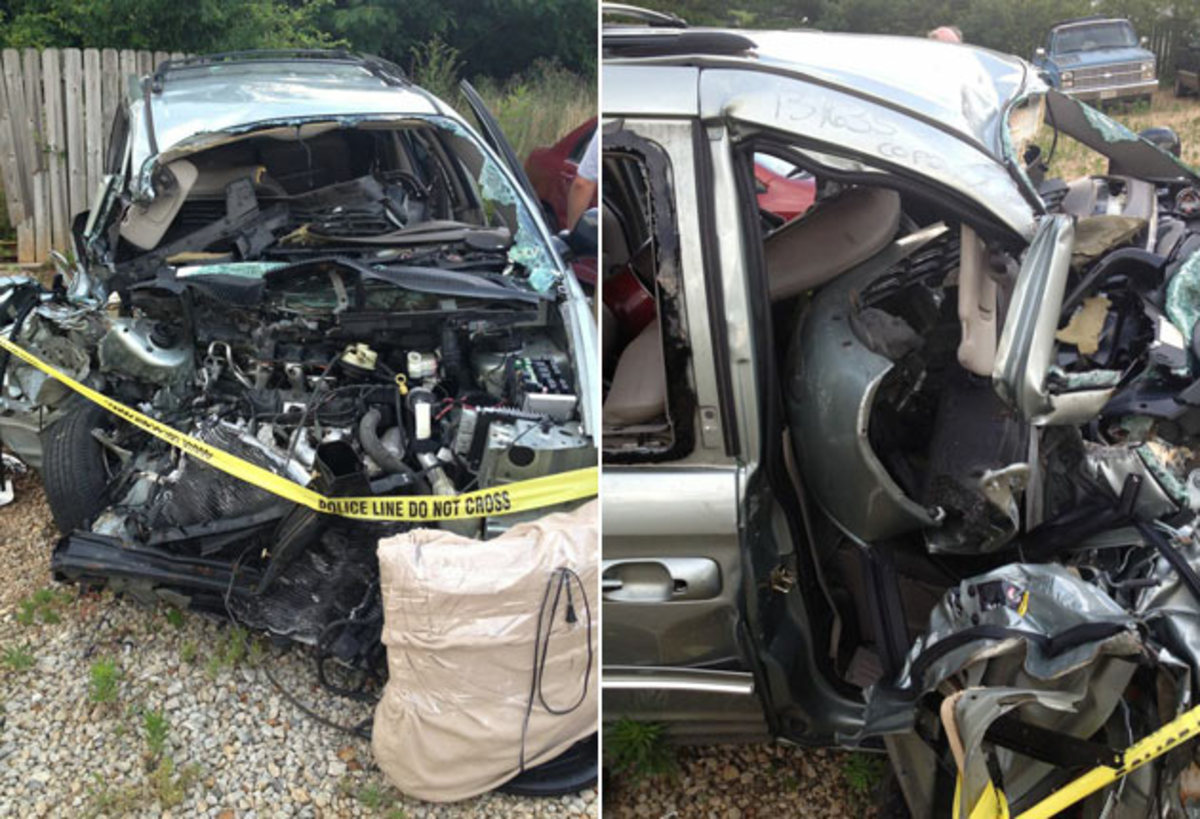
*****
The surprising thing: Blaylock was sober. His ex-wife had left him, in part, because she knew he would one day kill someone with his driving. But she assumed it would be from his escalating alcohol intake; as it turned out, his seizure was caused by alcohol withdrawal. It’s a fairly common symptom for people with severe drinking problems.
Blaylock had suffered several seizures in the weeks before the crash, and was consequently under doctor’s orders not to drive. These orders went beyond a concerned piece of medical advice: Rather, Blaylock was presented with a form prohibiting him from driving, and he signed it.
Also: Blaylock’s license was suspended from a previous DUI. Also: He was wanted on warrants for failure to appear in court on a separate DUI from the previous March.
Since 1995, Blaylock had been arrested seven times for DUI, including six times since 2007. On a stop in April of 2010, his blood alcohol content was .360, according to police reports—four-and-a-half times the legal limit—and when he stepped out of his car, he left it in neutral so that it almost rolled backward into the police car. In November 2012, he blew a .272. His March 2013 arrest occurred after he hit another car in a grocery store parking lot, got out of his car and staggered around for a bit, then climbed back in the driver’s seat and tried to flee the scene, according to police reports.
It’s anybody’s guess how much worse his driving record would look if he weren’t Mookie Blaylock, beloved and wealthy local professional basketball player. Two of the times he was pulled over for DUI, the charges were ultimately reduced to lesser charges: reckless driving and failure to use due care, respectively. At least once during his career, cops decided not to charge Blaylock after pulling him over, and instead called a person close to him to come pick him up.
“When we ran his criminal history, one of the first questions we asked was, ‘Why is this man still driving?’” said Tasha Mosley, Solicitor General of Clayton County, Georgia, where the accident involving the Murphys took place.
In recent months, Blaylock’s girlfriend had been leaning on him to curb his drinking, according to Samuel, his attorney. Sure, he was still drinking at night, said Samuel, which explains the empty case of Crown Royal found in the backseat of his Escalade after the crash, but he had made some concessions, including hiring a driver. His driver was busy the day of the crash, though, according to Mosley: “We were just shaking our heads, saying, ‘With so much money, he could’ve gotten a taxi.’ Get a damn taxi!’”
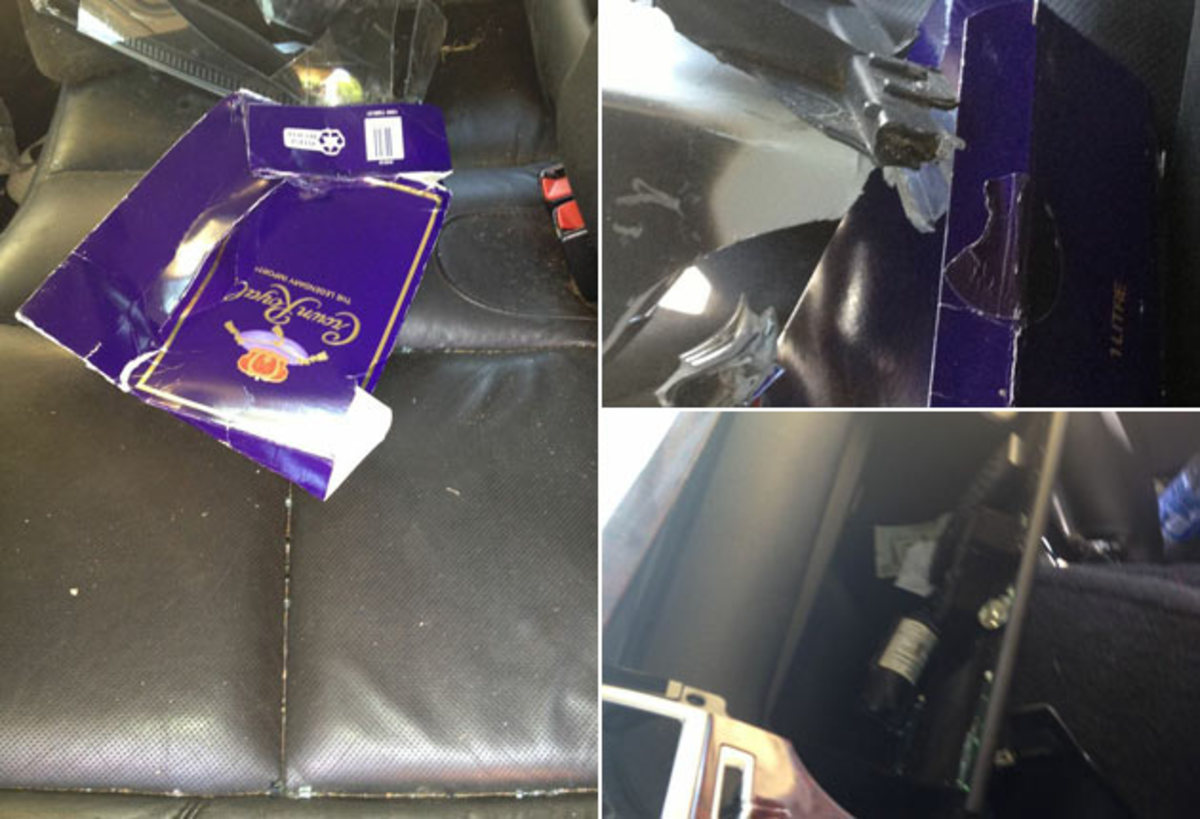
A Giant Shadow: Did Wilt Chamberlain have a son? Levi may be living proof
Their relationship had drawn stares in Texas and Mississippi, and had once nearly gotten them run off the road in Virginia. Perhaps this is part of why their shared sense of humor tended toward the dark and offbeat. South Park and Family Guy were favorites. “They didn’t single any one group out,” said Frank. “Everybody needs to realize: At some point in your life, you’re gonna get offended.”
“My mom and dad were always telling me, I was different person before I hooked up with her,” said Frank. “I had anger issues, and she mellowed me out. I guess because I was happy with her.”
On Tara Boulevard, when Frank came to, the EMTs and firefighters were already there. He had suffered a concussion, and his ankle was shattered. He looked to the right and saw that Monica was unconscious. The front side of the car was pushed into her lower body.
Blaylock’s car had come to a stop in the trees down the embankment. He had injuries to his legs and a large gash on his head, and when he went to the hospital, he suffered yet another seizure. Initial news reports would suggest he was on life support, but Samuel, his attorney, does not remember this being so.
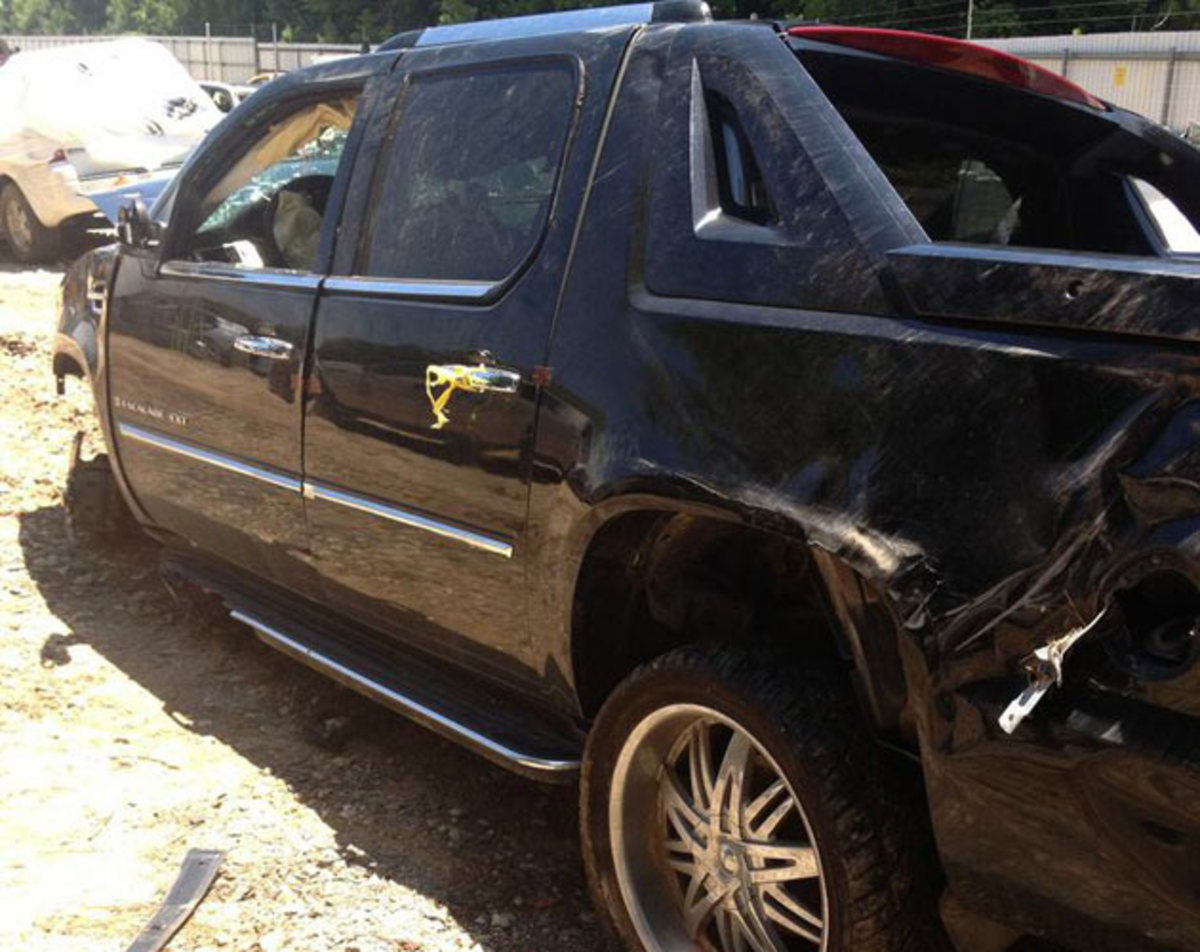
******
Blaylock had always been quiet, kept to himself. Growing up in the rough, predominantly black Eastside section of Garland, Texas, just outside of Dallas, he kept his head down when he walked to the outdoor basketball courts. Even after he turned pro — after two years of junior college and two years playing for prominent University of Oklahoma teams — his taciturn, country boy demeanor remained. Instead of talking, he occupied his mouth with a lipful of dip and a toothpick. “Mookie had no problem being in a room with five or six other guys and never uttering a word,” said Sam Bowie, Blaylock’s close friend and a former teammate with the New Jersey Nets.
Dealing with the media was an uncomfortable ritual. He was shy enough to begin with, and the media made things worse, putting him on the spot, trying to fit him into their storylines and soundbites. “He had unpolished social skills, and didn’t want to make himself look bad,” one friend said. He especially hated how the mostly white reporters would take the words of the black players out of context and make them sound dumb, according to a source close to him.
He was more comfortable with the improvisational flow of the game, where he didn’t have to explain everything. He had a point guard’s feel for the cadences, a sense of when to push the ball or pull it back, and a knowledge of where every teammate would be on every set. Who cared if reporters made him feel insecure? When he was playing basketball — for which he made nearly $32 million over his career — his IQ was off the charts.
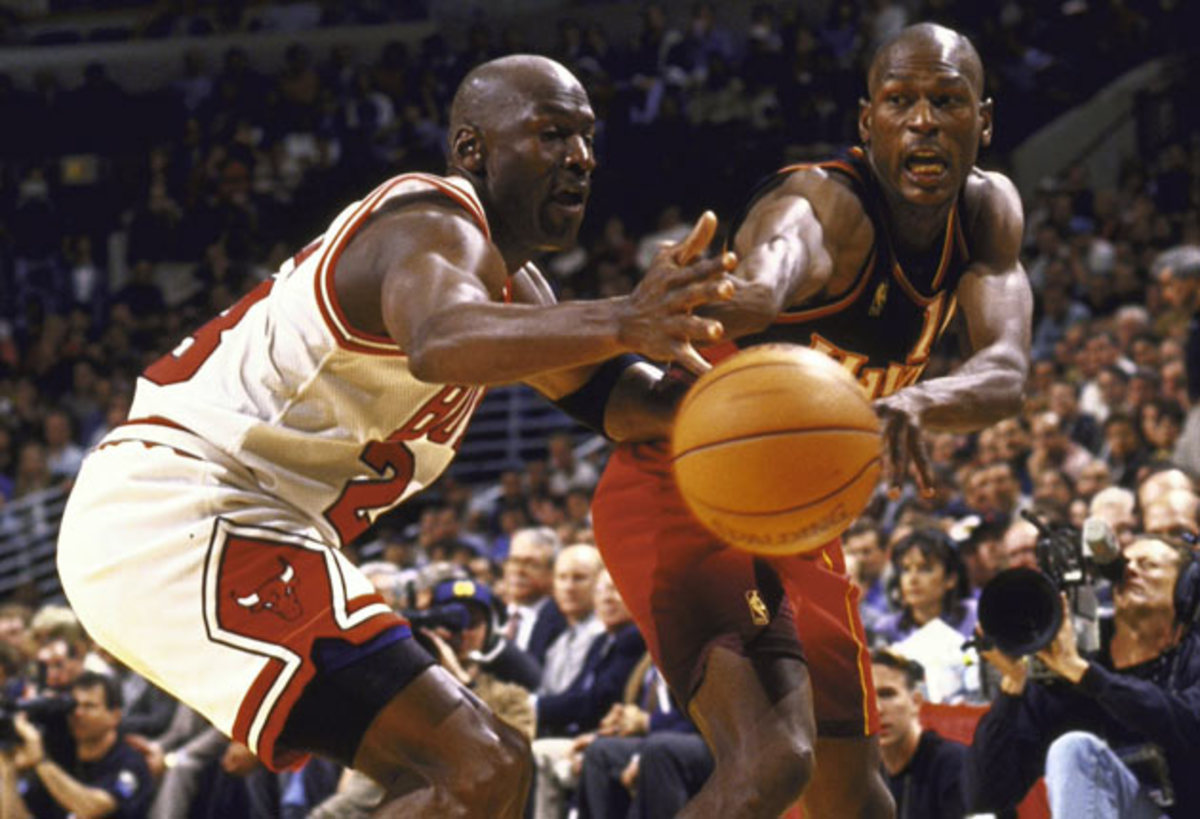
His headiness as a player was all the more remarkable considering that he was stoned a large part of the time. “He was one of the few NBA players who could smoke marijuana and play the best 48 minutes you’ve ever seen,” said Danny Solomon, a former Hawks ballboy who is still one of Blaylock’s best friends. “And he was doing it for so long that it took a lot to have an effect.”
Pot was one of his escapist pleasures, like the trout fishing vacations he took in Colorado or his golf habit. He first got in trouble for marijuana when he was suspended for the district championship game his senior year of high school. He was arrested for it twice during his career, including once in 1997, when he tried to take two ounces across the Canadian border as the Hawks boarded a flight from Vancouver after playing the Grizzlies. Smoking didn’t seem to diminish his focus; it takes an alert player to amass 2,075 career steals.
Indeed, aside from a small handful of scattered incidents, Blaylock was a low-maintenance player and a good teammate. Lenny Wilkens, Blaylock’s longtime head coach with the Hawks, once sat Blaylock down for a concerned lecture after his 1995 arrest for DUI, carrying an open alcohol container, and marijuana possession. But overall, said Wilkens, Blaylock “was serious about his play. He was always on time, and he was receptive to coaching. I enjoyed coaching him.”
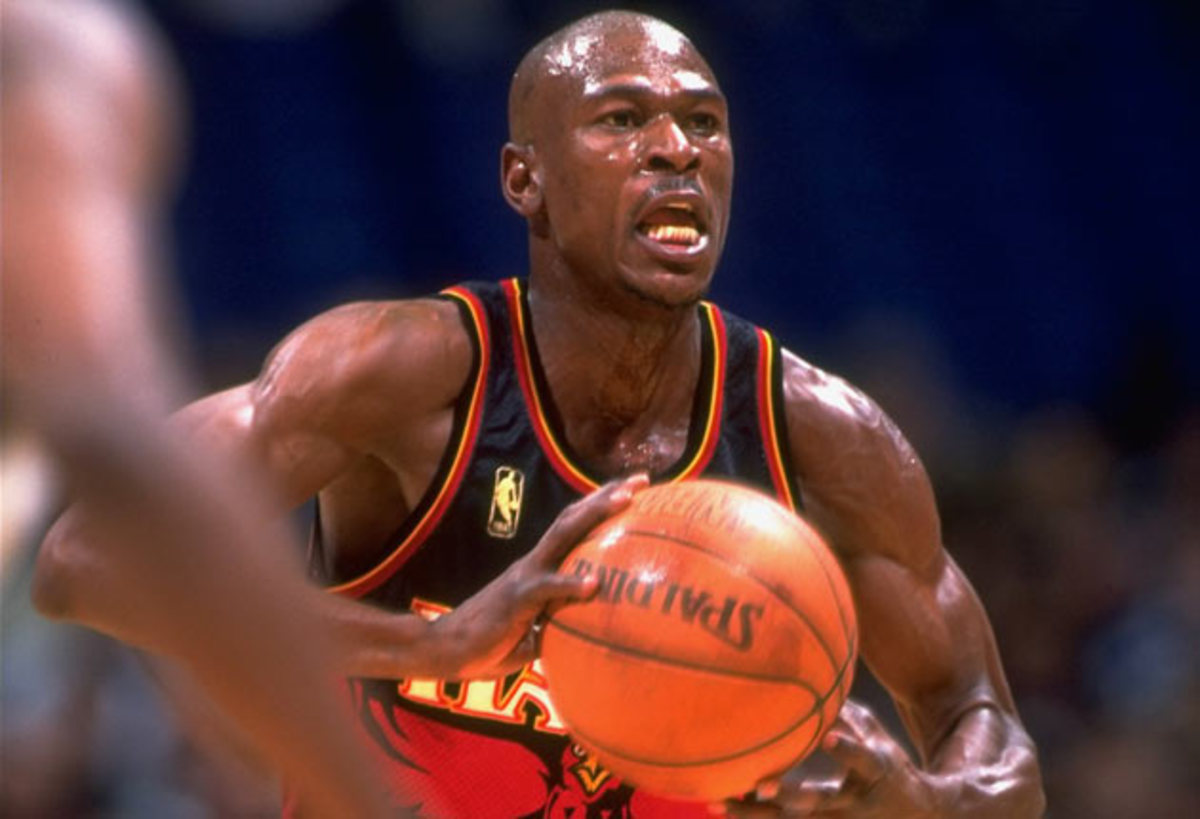
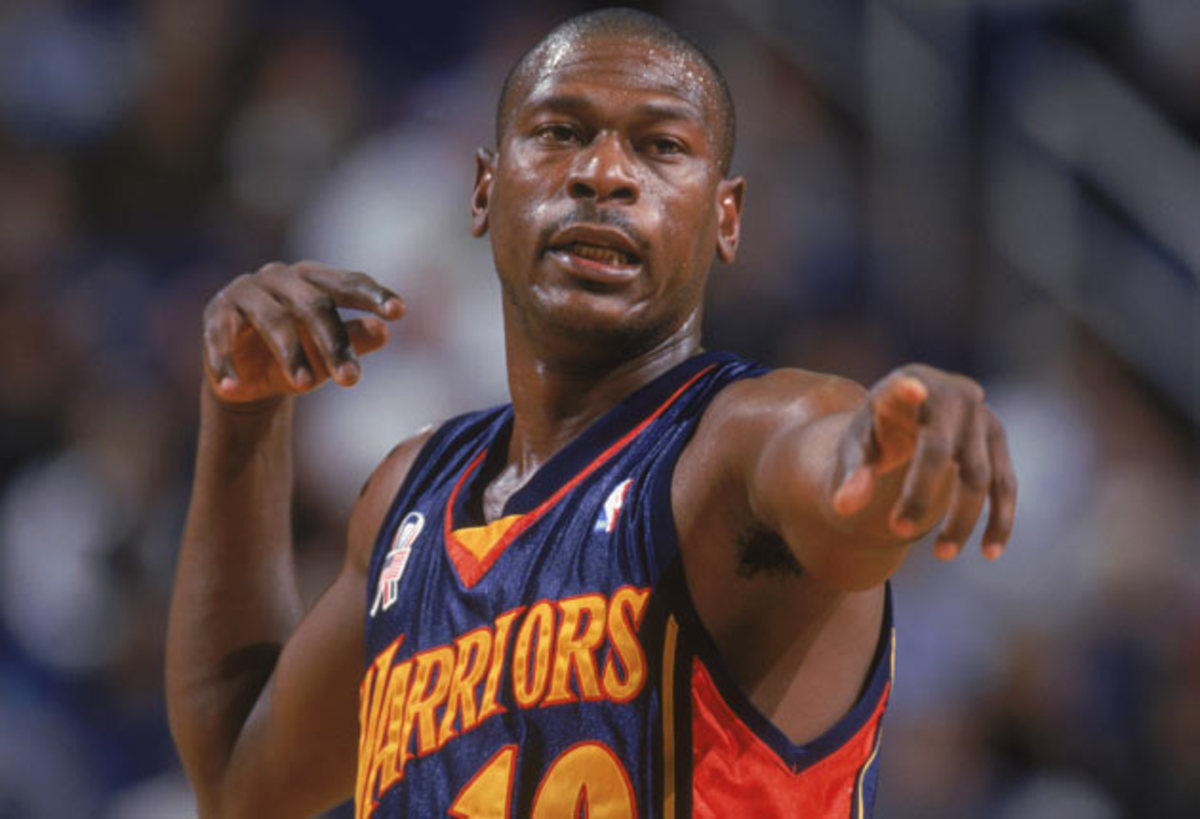
*****
It was both a blessing and a curse that Blaylock saved so much money from his playing career. He and his children never wanted financially, and he was able to live out the country boy’s dream by moving to a six-acre property in rural Pike County, 50 miles south of downtown Atlanta, and playing all the golf he wanted. Yet it also left him without structure, allowing his addictions free reign.
Six of his seven DUIs came after he retired. Between September 2010 and February 2012, he did three stints in jail for driving offenses, totaling more than four months. According to Solomon, he was going to the strip club “sometimes five times a week” during this time. In 2009, cops came to his house for a domestic disturbance after his girlfriend called them, though nobody was arrested, according to police reports.
After the fatal crash, before he began his sentence, he spent several months in jail for prior driving offenses, then went to an in-patient rehab facility for more than seven months. But prior to entering rehab, as a free man, he coped with the crash’s aftermath in predictable ways: By drinking, and going to strip clubs. “We’d go to the club and people would look at him and try to ask him about it. But he wouldn’t want to talk about it,” said Solomon.
Even the crash didn’t seem to chasten him when it came to alcohol and cars. Six months afterward, according to court records, he was out at a bar with a friend, Darryl Eubanks, and let Eubanks drive his car even though Eubanks was drunk and his license had been revoked. (Blaylock was sentenced to a fine and probation.) When he showed up to his arraignment on those charges, he was drunk, and was put in jail by the judge for contempt of court. “He was respectful, he wasn’t a loudmouth, he wasn’t carrying on, but it impacts his ability to make a valid decision,” explained the judge, Hon. Sidney Esary.
When he faced vehicular homicide charges for the crash that killed Monica, he retained Samuel, a high-profile Atlanta-based attorney to the stars who, along with his law partner, Ed Garland, has represented Ray Lewis, Jamal Lewis, Dany Heatley, Ben Roethlisberger, the rapper T.I. and the Chief Financial Officer of the Gold Club during the strip club’s 2001 RICO trial.
Because Blaylock wasn’t drunk at the time of the crash, prosecutors initially thought they would only be able to charge him for misdemeanor vehicular homicide. This carries a maximum twelve-month jail sentence, but probation is the more common result. It was only by happenstance that they were able to upgrade the charges: In late April of 2013, several weeks before the crash, Blaylock had suffered a seizure while eating lunch in a swanky Atlanta restaurant, and was taken to the hospital. A responding police officer knew from that incident that Blaylock was prohibited from driving. When news broke about the fatal crash several weeks later, the officer emailed prosecutors with what he knew. The fact that Blaylock knew he shouldn’t have been driving allowed them upgrade the charges from second degree vehicular homicide, a misdemeanor, to first degree, a felony. “If that officer had never sent us that email, [Blaylock] would have been charged with second degree, because we would never have known about the doctor’s orders,” said Mosley, the Solicitor General.
The signed doctor’s admonition was the prosecution’s smoking gun, which not even Samuel could counter. “Mookie had specifically been told, ‘You’re not safe, you can’t drive.’ It was put in writing to him, and he signed it. That’s why we viewed it as an indefensible case,” said Samuel.
Had he gone to trial, Blaylock would have risked a 7-10 year sentence, which Samuel said would have likely fallen on the high end because of Blaylock’s prior DUIs. Instead, he took a plea deal for a maximum of three years in prison, provided he comply with certain terms: passing regular drug and alcohol tests for seven years, going to weekly Alcoholics Anonymous meetings and doing alcohol abuse-related community service. He will be forbidden from driving for at least 15 years.
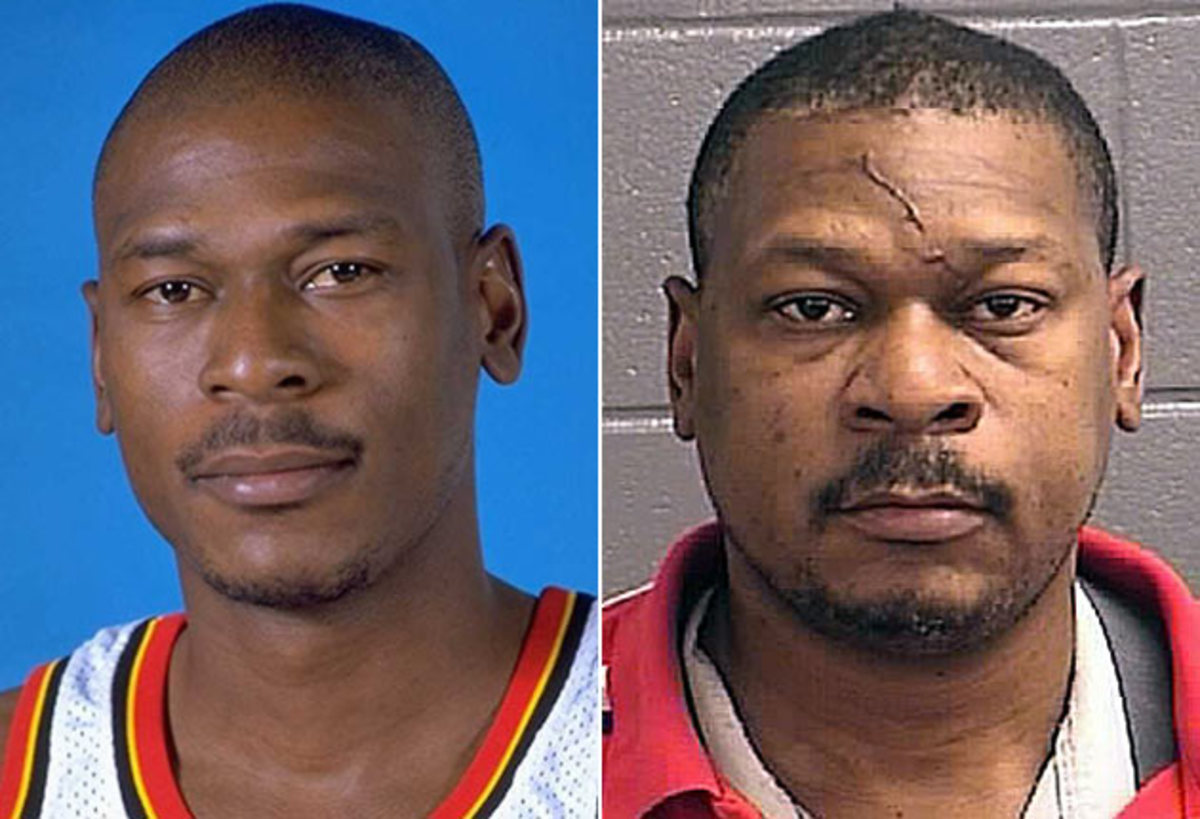
Samuel and Solomon both say Blaylock is extremely remorseful, and that, post-rehab, he’s committed to straightening himself out and bringing some good out of the tragedy. At his sentencing, he apologized to Frank, telling him the crash would stay with him for the rest of his life. Frank, however, hasn’t accepted it. “It seemed like he was just trying to [apologize] it to make himself look good,” he says. “I may be wrong, but that’s my opinion.”
